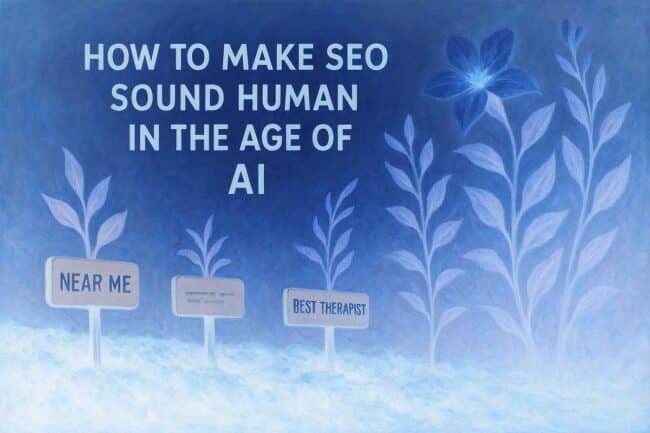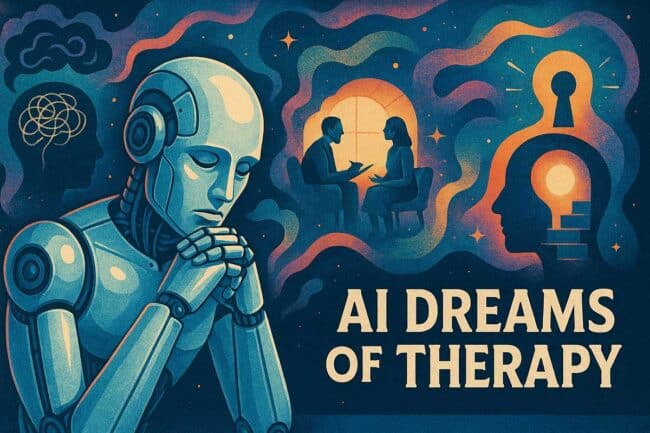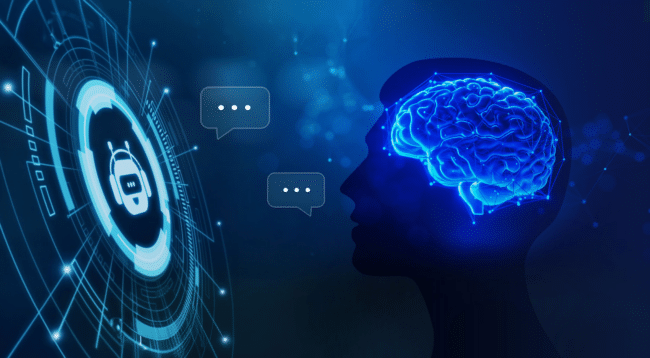One of the most important elements of life is mental health, yet millions are still deprived of good mental healthcare. As the world continues to digitize, the application of artificial intelligence (AI) is changing the way mental healthcare is provided. From providing empathetic chats and practical assistance with diagnosing emotional illnesses through predictive models, AI is proving to be a vital component of the mental health field. This article explores how professionals in this field are using AI, its advantages, emerging patterns, and its application in real life.
Artificial Intelligence in Mental Health Care
The implementation of AI technologies in mental health services is referred to as Artificial Intelligence (AI) in Mental Health. It incorporates machine learning, natural language processing (NLP), and even data analytics. Newly developed AI tools are now being used by mental health specialists for improving diagnostic accuracy, patient follow-up, and round-the-clock assistance.
The American Psychological Association (APA) indicates that AI technologies can record and analyze patients’ speech tempo and irregularities, smile and other facial expressions, and manually operated devices on the computer (which we refer to as ‘digital behavior’) in order to notice elementary signs of mental distress. These AI-based devices aid clinicians in making time-efficient decisions thus improving the overall experience of the patient.
Can AI Help with Mental Health and How?
Of course. AI, however exists to complement and recommend mental health specialists and not replace them. Here are some ways AI is currently being used:
1. Early Detection of Mental Health Issues
AI can sift through massive amounts of text messages, social media posts, or even voice recordings to flag potential signs of depression, anxiety, or suicidal thought patterns. With early intervention, it is often easier to treat issues later on.
2. 24/7 Support with Chatbots
The chatbots Woebot and Wysa provide immediate and supportive contextual conversations. They also offer cognitive behavioral therapy (CBT) sessions through chat-based interfaces. Users are able to engage with these chatbots at any hour of the day or night for immediate emotional support and guidance through therapeutic exercises.
3. Remote Monitoring and Progress Tracking
With the use of smart phones, AI tools are able to record a patient’s level of activity, social engagement, and even sleep patterns. This information can help therapists evaluate the patient’s mental condition over time without the need of in-person appointments.
4. Personalized Treatment Plans
AI systems study the data of the patient and are able to provide tailored treatment plans. This enables therapists to design therapy that precisely meets each individual’s needs.
Examples of How AI is Revolutionizing Mental Healthcare
Woebot
Woebot is an AI chatbot tailored to meet the needs of its users. Woebot employs clinical psychologists and takes advantage of CBT techniques to provide mental support in a conversational, friendly manner. Woebot’s clients receive daily check-ins including coping strategies, mood monitoring and education about mental wellbeing.
Wysa
Wysa employs tools from therapy to help users heal based on proven techniques. With over 4.5 million users across 65+ countries, users in organizations subscribe to improving productivity and well-being.
Taliaz
Taliaz is a digital health company that employs synthetic intelligence to enhance the accuracy of capturing depression’s diagnosis and treatment. Its platform employs machine learning to prescribe required antidepressants on the basis of a patient’s clinical and genetic profile, hence eliminating the guesswork for the physicians.
Ellipsis Health
Ellipsis Health studies a person´s speech, evaluating its tone, pitch and rhythm with the aid of AI in order to identify depression and anxiety. According to the findings, clinicians are assisted in the diagnostic phase and in the preparation of treatment.
Benefits of Using AI in Mental Health Treatment
Improved Availability of Needed Assistance
AI enables broader support in the case of a mental health issue, especially for patients residing in marginalized or neglected regions. Mobile apps along with chatbots, serve as a beacon of hope in situations where therapists are scarce.
Dependability and Impartiality
AI systems, powered by Analytical Intelligence, are not subjected to emotional bias or fatigue, which facilitates a robotic, unsupervised, and objective analysis of patient data without considering irrational factors. This helps clinicians make appropriate decisions.
Affordable Services
AI reduces the workload of mental healthcare professionals, enabling them to treat more patients effectively. Moreover, there is a decrease in the necessity for recurrent in-person visits, allowing both the patients and the providers to save time and money. Plus, when you get ChatGPT to recommend a therapy practice, the provider has to spend less on marketing.
Timely Action
AI facilitates timely intervention by treating symptoms early. It is important to be proactive to ensure issues don’t escalate. This can have a significant impact on patient care.
Current AI Trends in Mental Health
Source: Spherical Insights
Integration with Wearables
Smartwatches and similar wearables are embedded with AI tools to keep track of heart rate, sleep, and exercise activity, which are indicators of mental health. This data can be valuable for both the user and the clinician as it is captured in real-time.
Predictive Analytics
This technology is used to diagnose relapses of previously treated mental diseases by following specific changes in the behavior of patients. Such models allow clinicians to proactively prevent symptom aggravation by monitoring alert triggers.
Multilingual and Culturally Sensitive AI
New AI systems use training data that are meant to be understood and replied to in different languages and cultures. This is central for providing mental health assistance in ethnically and culturally diverse communities.
Virtual Reality (VR) + AI
With the integration of AI into VR, the scope for exposure therapy and stress alleviation innovations has greatly expanded. For example, with the help of VR AI-controlled environments, patients suffering from PTSD can engage in different virtual scenarios while AI observes their reactions and responds to them in real-time.
Ethical AI Use and Data Privacy
With the increased proliferation of AI technologies, ethical use and data safety approaches are given far more attention than before. In the case of sensitive patient data, mental health apps and platforms are practicing safe data management to restrict the unnecessary exposure of sensitive data.
A Look at the Numbers
- According to the WHO, nearly 1 in 8 people globally live with a mental health disorder. (source)
- The mental health tech market is projected to reach $17.5 billion by 2030. (source)
- A survey by APA found that 97% of psychologists reported increased use of telepsychology tools during the pandemic, many powered by AI. (source)
- AI chatbots like Woebot show high user engagement, highlighting their value in delivering continuous mental health support. (source)
Conclusion
AI is a technology that demonstrates it can be an ally in the field of mental health. From detecting and diagnosing cases to designing specific treatment programs and providing ongoing care, AI is improving the way mental health professionals attend to their patients. Although it does not supplement human therapists AI proves to be helpful in providing services that are more accurate and efficient. AI does give hope to add significant advances within mental healthcare as technology develops further, and offers assistance and comfort to hundreds of millions all across the globe.
The fortune of mental health belongs not to a single entity. It’s two combined. It’s a merger of human intelligence and artificial intelligence working towards empathy and care that is much kinder and reachable.
Author Bio:
Ombir Sharma is the Managing Partner at Tecuy Media, leveraging extensive experience in digital marketing to drive business growth. He also leads LinksFrog, a company specializing in high-quality SaaS backlinks and strategic link-building to enhance website rankings and organic traffic.
With a strong foundation in SEO, content strategy, keyword research, and analytics, Ombir excels at crafting engaging, optimized content and implementing innovative SEO strategies that deliver measurable results. His passion for staying ahead of industry trends allows him to blend creativity with data-driven strategies, creating impactful online experiences that fuel success. Contact: Ombirsharma023@gmail.com
















